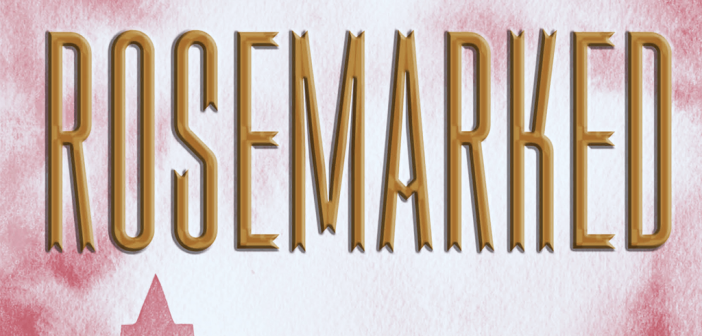 I grew up reading novels about kickass girl fighters. When I wrote my debut novel Midnight Thief it was only natural that the main character Kyra would be a talented fighter. After I finished Midnight Thief and its sequel Daughter of Dusk, I was ready for something new. Now that I had written something about a girl who beat people up, I thought, “Why not write about a girl who puts people back together?”
I grew up reading novels about kickass girl fighters. When I wrote my debut novel Midnight Thief it was only natural that the main character Kyra would be a talented fighter. After I finished Midnight Thief and its sequel Daughter of Dusk, I was ready for something new. Now that I had written something about a girl who beat people up, I thought, “Why not write about a girl who puts people back together?”
That book became Rosemarked, and the main character Zivah is a very talented healer.
She was a delight to write, although her story presented a whole new set of challenges compared to writing Midnight Thief.
First of all, how would I make Zivah’s story exciting? It turned out that research for this book was super interesting. While my story is set in a fantasy world, I read a lot about ancient healing methods to get an idea for the types of things doctors could do in the absence of modern technology. The answer is, quite a lot! Did you know that an early form of cataract surgery called couching was already being performed in ancient India? The ancient Egyptians were cutting out tumors, and Hippocrates described how to amputate limbs while avoiding too much blood loss by tying off blood vessels. As advanced those techniques were though, they also lacked some modern advantages. For one thing surgery was done without anesthetic.
So the research was interesting, but you can’t hold up a story with interesting research alone. You need tension, and you need conflict. How would Zivah’s profession serve those goals?
Well, there’s actually quite a bit of drama in the healing profession. You still have the same life or death stakes, as anyone who’s watched prime time hospital dramas can tell you. However, I wasn’t writing a hospital drama. I was writing an adventure fantasy, which traditionally calls for some combat.
To satisfy that expectation, I had to be creative. I decided that Zivah, though she wasn’t a trained fighter, still had to use weapons as part of everyday life. Just as Katniss in The Hunger Games learned to shoot a bow and arrow to feed her family, Zivah used a blowgun in her everyday life as a healer to capture creatures for her menagerie of poisonous creatures.
Which brings me one of my favorite aspects of the story. I decided to make Zivah’s homeland something like a bamboo forested Australia — basically anything and everything can kill you. Because Zivah’s homeland is so dangerous, one of her primary jobs is to raise poisonous creatures to create antivenoms. And because she spends so much time around poisonous animals, she has to inoculate herself with venoms to develop immunity. Once you have a healer with a menagerie of poisonous creatures, and who’s immune to poisons herself, you can imagine what interesting scenarios a devious author might cook up, especially if said healer likes to walk around with a deadly snake on her arm.
So now I have a main character who is able to hold her own in a fight, and who can cause significant harm with her specialized ability and knowledge. But the question is, should she use that knowledge to hurt people.
And that leads to one of the big moral quandaries of the novel. Knowledge about the human body is a double edged sword. If you know how to sew someone up, you also know the best way to tear them apart. But should you? In my world, there is no Hippocratic Oath, but healers still operate with a moral and religious code. If you’re sworn to use your healing knowledge to help rather than to harm, how faithfully would you hold to that? Would you still stick to your principles, even if the lives of your loved ones hung on the line? If your enemy lays dying before you and you know how to heal him, would you? These are all questions that Zivah must struggle with.




